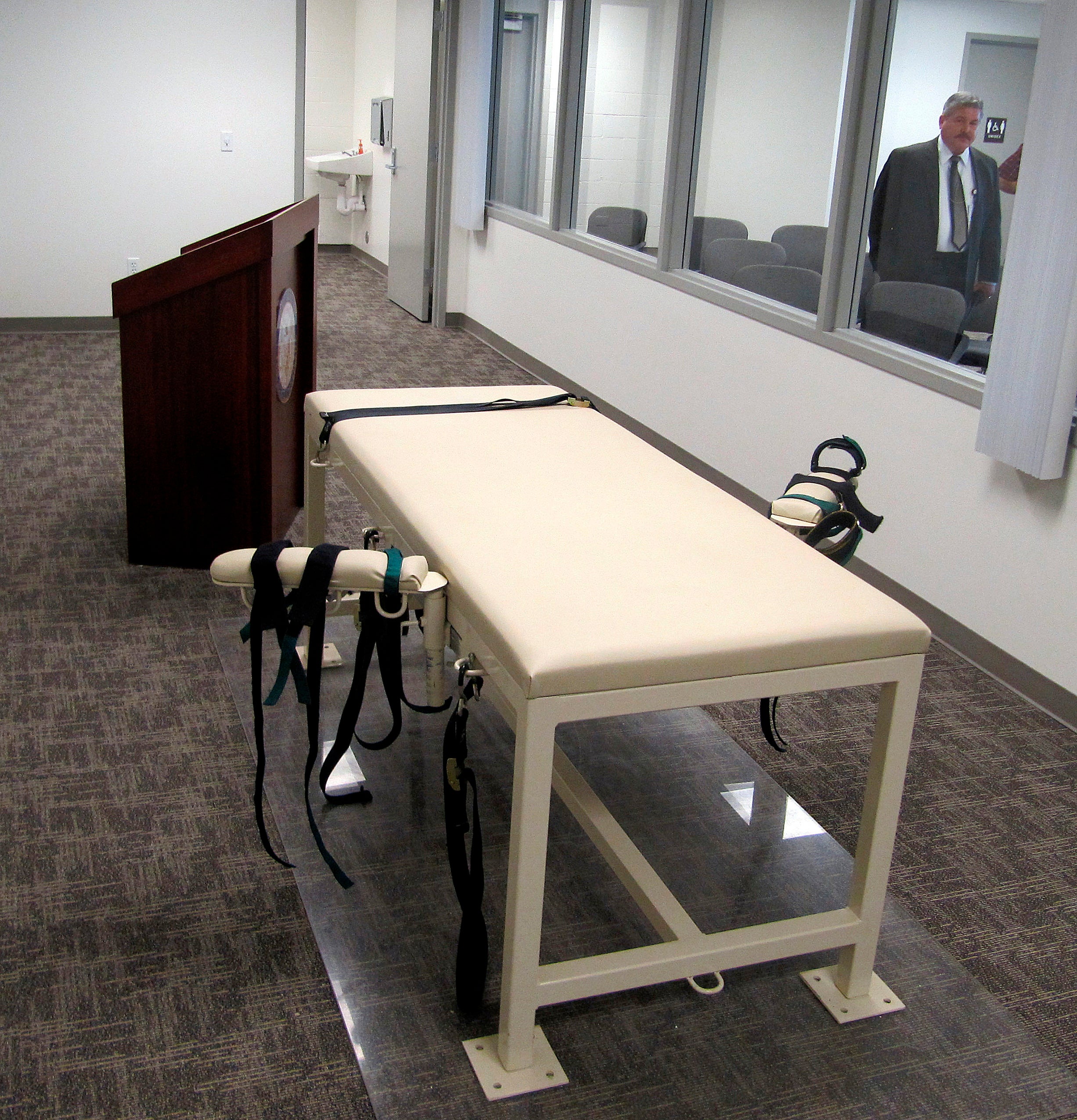Idaho bill would bring back execution by firing squad
Idaho could bring back firing squads as a method of execution under legislation introduced by a panel of lawmakers Wednesday

Your support helps us to tell the story
From reproductive rights to climate change to Big Tech, The Independent is on the ground when the story is developing. Whether it's investigating the financials of Elon Musk's pro-Trump PAC or producing our latest documentary, 'The A Word', which shines a light on the American women fighting for reproductive rights, we know how important it is to parse out the facts from the messaging.
At such a critical moment in US history, we need reporters on the ground. Your donation allows us to keep sending journalists to speak to both sides of the story.
The Independent is trusted by Americans across the entire political spectrum. And unlike many other quality news outlets, we choose not to lock Americans out of our reporting and analysis with paywalls. We believe quality journalism should be available to everyone, paid for by those who can afford it.
Your support makes all the difference.Idaho could bring back firing squads as a method of execution under legislation introduced by a panel of lawmakers Wednesday.
The state eliminated its never-used firing squad option in 2009, but has been unable to secure the drugs needed for lethal injection executions. Only Mississippi, Utah, Oklahoma and South Carolina currently have laws allowing firing squads if other execution methods are unavailable, but a judge has put South Carolina's law on hold until a lawsuit challenging the method is resolved.
In the bill sponsored by Idaho Rep. Bruce Skaug, a Republican from Nampa, firing squads would be used when lethal injection isn't available. Skaug noted that the state canceled the planned execution of Gerald Pizzuto Jr. late last year after Idaho Department of Correction officials said they were unable to get the chemicals needed for lethal injection.
Pizzuto has spent more than three decades on death row for his role in the 1985 slayings of two gold prospectors.
“The way it stands now, they may never get those materials for the lethal injections,” Skaug told the House Ways and Means committee. “This is a rule of law issue: Our criminal system should work and our penalty should be exacted.”
The suitability and origin of lethal injection drugs are frequently called into legal question when states are planning executions. Ineffective drugs can lead to botched executions, violating the U.S. Constitution’s Eighth Amendment prohibition against cruel and unusual punishment. Major pharmaceutical companies have long refused to sell medications to states if they think they will be used for executions, prompting some prison officials to switch to novel or sometimes questionable sources for the chemicals.
Public support and use of the death penalty has declined for the past two decades, in part because of the high rate of “botched" or highly problematic executions, according to an annual report from the Washington, D.C.-based Death Penalty Information Center.
Skaug acknowledged that death by firing squad can cause severe pain, but he said it was a better option than lethal injection.
“There can be about 10 seconds of extreme pain before death at times, but I find it to be, in my personal view, more humane than lethal injection,” he said.
The vast majority of states that allow executions use lethal injection as their primary method, though some states also allow other methods like electrocution. There have been only three firing squad executions in the United States since 1976, according to the Death Penalty Information Center.
Eight people, including Pizzuto, are on death row in Idaho, according to the Department of Correction.
The Idaho bill still needs a public hearing before the committee will decide whether to send it to the full House for consideration.